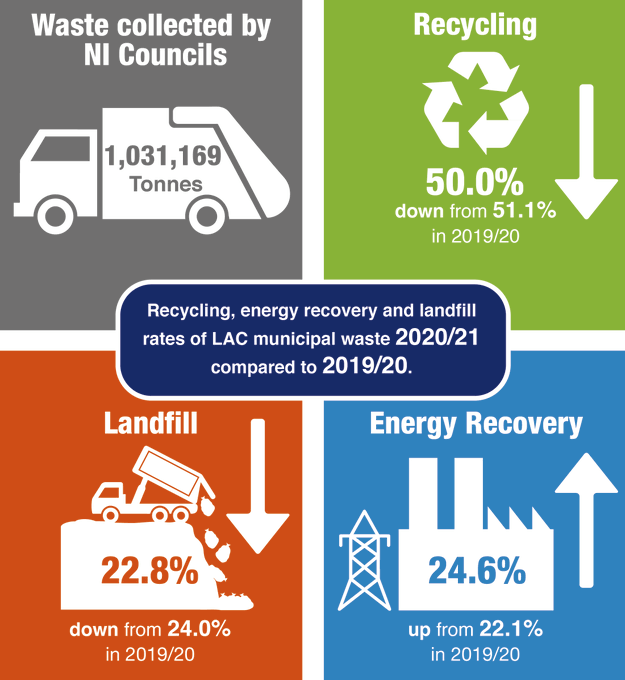|
|
| The first-of-its-kind interactive tool to assess the UK’s transition to a net zero carbon emission economy has been published by PwC, and reveals how Northern Ireland stands to benefit from targeted investment in its green energy sector.
The Green Jobs Barometer has been created to improve the public’s understanding of the likely effects of the transition, and to support policy-makers and businesses to ensure that the transition is implemented fairly with shared benefits across the UK. It does this by tracking 5 pillars: job creation, job loss, the carbon intensity of employment, and worker sentiment across regions and sectors. The transformation to a net zero economy is feeding through to the employment market, accounting for 1.2% of total advertised jobs, equating to 124,600 new jobs, for the year to July 2021.This figure should also grow as the UK accelerates efforts to transition to net zero. Nevertheless, the scale-up will need to intensify to meet Government targets of two million green jobs by 2030 and disparities are already arising in how the transition is affecting different parts of the UK. Regional disparities While Northern Ireland has the absolute lowest level of CO2 emissions in the UK, when the pillars are combined it places the region as one of the lowest-ranking, 11th out of 12. Figure 1: Ranking of UK regions based on the overall barometer index
The key driver behind the region’s index score is the level of CO2 emissions per employee. While overall the region has the lowest absolute level of carbon emissions, its smaller-than-proportional workforce means it has the highest carbon emissions per worker. The reliance on carbon intensive fuels such as coal, burning oil and gas oil and limited availability of natural gas is pulled out as a key driver. It highlights the potential for the region to benefit from growing its green energy sector. According to the index, for every single green job created, a further 1.4 jobs in associated sectors are supported – and this rises to 6 jobs for sectors closely aligned to the energy transition. This would in turn address the current employee perception that suggests Northern Ireland is the least environmentally friendly region. Tackling the disconnect on ‘sunset’ jobs One striking finding from the survey of 2085 UK workers is a disconnect between public perception of the impact on jobs and its likely impact. It found that 5% of people believed their current job would not exist following the transition – when extrapolated to the full UK labour market, this is the equivalent of 1.7m jobs potentially lost, not far from the Government’s target of creating 2m new green jobs. It demonstrates how many workers feel the transition is a threat to their livelihoods. However the number of lost or ‘sunset’ jobs is likely to be considerably lower – these are jobs which cannot be repurposed for a green economy. Many studies show there is likely to be an overall net positive impact on jobs and many of the ones which may be at risk may be easily transitioned or adapted. The concentration of employment in relatively low carbon-impact jobs such as human health and social care, wholesale and retail trade and education means Northern Ireland is likely to be least affected by ‘sunset’ jobs. The barometer places Scotland at the top, driven by it having the greatest proportion of new green job creation, with its strong presence of energy and utilities roles in particular within renewable energy. However this is also the region which hosts the largest projected share of ‘sunset’ jobs. London performed strongest in relation to the wider benefits of green jobs, carbon intensity of employment and within the green workspaces survey. Yorkshire and the Humber has the least training, education, and/or communications from employers with regards to green workplace practices. Wales receives the lowest overall score. Cara Haffey, Partner PwC NI, commented: “This tool should focus minds and policies on the key areas that need to be dealt with to ensure Northern Ireland is not left behind in the transition. The barometer shows us how we’re doing compared to other regions and I’m optimistic that this is a challenge we are more than capable of meeting. We need only look at how some of our businesses in the transport and energy sectors, for example, are leading the way to know it can be done. “With targeted policies and investment, a green future can be a future of employment for everyone and we can’t rest on our laurels because we are protected from losing ‘sunset’ jobs. Other regions are doing more to unlock the wider benefits from the creation of new green jobs and.as the Executive establishes its Just Transition Commission in 2022, we should benefit from shared learnings elsewhere. It’s critical that action is not delayed.” Kevin Ellis, Chairman and Senior Partner at PwC, said: “Jobs are getting greener and this is cause for optimism, but evidence is needed on the level and distribution of these opportunities. Left unchecked, green employment will grow in the most fertile spots, but not necessarily where they’re needed most. “Our research indicates where support and investment news to be targeted. Green jobs in energy, utilities and manufacturing sectors have a greater knock-on effect on employment, generating further jobs. Likewise, regions including Northern Ireland and Wales may see a disproportionate rise in green energy and jobs, given their current reliance on carbon intensive fuels. By acting now, we have a massive opportunity to rebalance the economy and ensure a fair transition.” |


